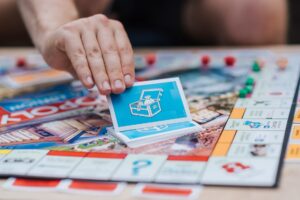Study: leisure games help in keeping the mind sharp as people age
People who spend their free time playing various games keep their minds sharper in old age, according to a Scottish study. Here is the answer for you, which new hobby is worth adding to your schedule, if you haven’t already done so. After all, there is nothing better than heart-warming leisure games, which are also an investment in your health.
Leisure Games: it’s never too late to start
It turns out that those who regularly played non-digital games in their lives performed better on tests of memory and thinking in their 70s. And what to do if you have been living for several decades, but you have never held board games in your hands? We have really good news for you. It turns out that all is not lost. The same study found that even in older age, people can expect benefits from changing their behavior. So, the often-heard excuse “it’s too late for me” really doesn’t apply here. Study participants who started playing more in their 70s were more likely to maintain their thinking skills later.
Repeated tests
Research psychologists studied more than 1,000 people who reached the age of 70. Their memory, problem solving skills, thinking speed and general thinking ability were tested. The participants repeated the same tests every three years until they were 79 years old.
But in addition to all the tests, the participants were also asked another important question about how often they play games such as cards, chess, bingo, crosswords or similar.
Findings that will help you make decisions
The researchers used statistical models to analyze the relationship between a person’s level of play and thinking skills. The team also took into account the results of an intelligence test taken by the participants at the age of 11. Participants’ lifestyle factors such as education, socioeconomic status, and activity level were also analyzed.
Analysis of the data found that recreational gaming was associated with significantly less relative cognitive decline between ages 11 and 70. After all, games are mental exercises that can help slow the decline of cognitive functions or even improve these functions. It also found that people who started playing in later years experienced less decline in thinking skills in their 70s. This result was especially evident when assessing memory and thinking speed.
The researchers say the findings help to better understand what lifestyle and behaviors may be associated with better cognitive health outcomes in later life. Furthermore, such studies and their results can help people make timely decisions about how best to protect their thinking skills as they age.
Research published in 2019, in The Journals of Gerontology Series B: Psychological Sciences.
Authors: Drew M Altschul, PhD, Ian J Deary, PhD
Curiosities
How do board games develop creativity
How do board games develop creativity? Creativity is an...
Curiosities
Interesting facts about board games
Interesting facts about board games The global pandemic has...


